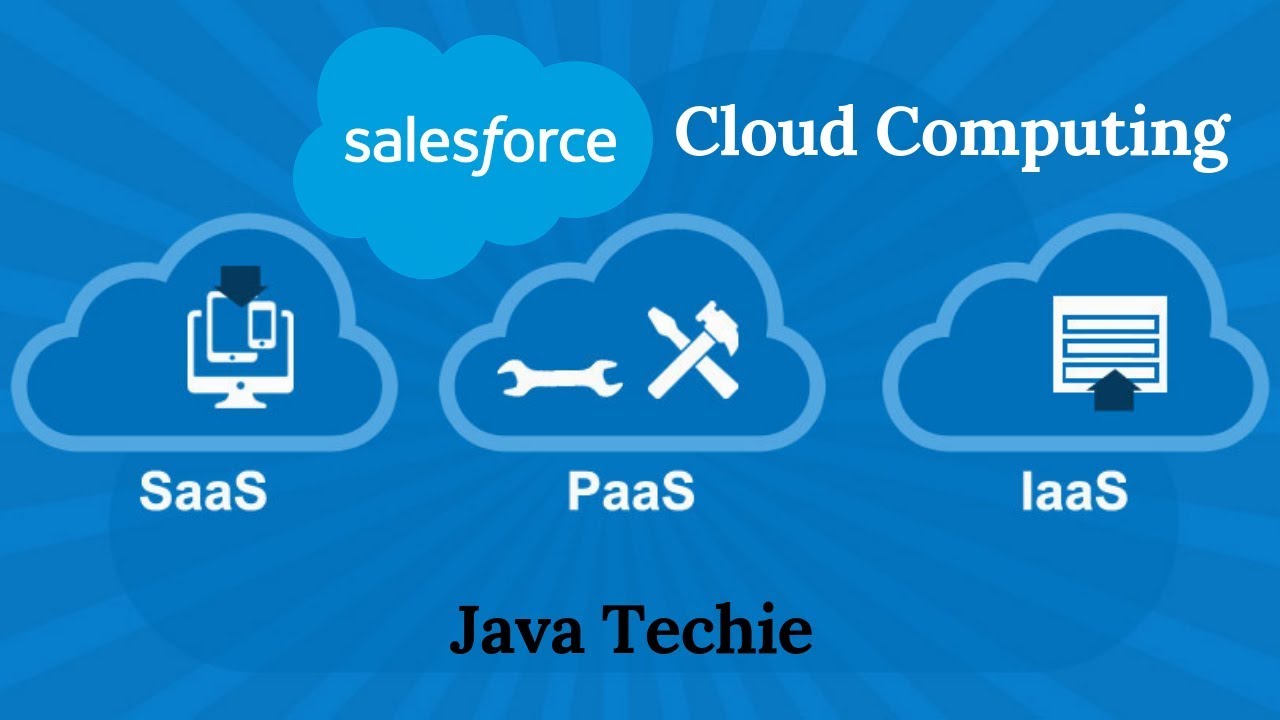Salesforce Cloud Computing is one of the most powerful Salesforce cloud computing apps available online. As a result, it is one of the primary pillars of some of the most successful companies in the world. Moreover, it’s so ubiquitous that Salesforce developers are in demand wherever they go.
If you’re not familiar with what Salesforce cloud computing does, you’re clearly missing out. So here’s a quick and easy beginner’s guide about Salesforce and how it can change how you deal with your business.
Table of Contents
What Is Cloud Computing?
Before we understand Salesforce in its entirety, we need to know what cloud computing is. The simple answer is cloud computing is an on-demand system resource that you can access on the internet. This can be anything from computing power to storage that you can use without direct active management.
Most cloud servers are offsite third-party data centers that lend their computing power to active users. Rather than have you buy your own data center upfront, these cloud servers allow you to borrow their services, together with a variety of different apps.
Salesforce is a cloud computing service that works through the Service-as-a-service (SaaS) model. SaaS allows you to use their software through a subscription service accessed through the cloud. There are a variety of uses for Salesforce, depending on your company’s needs.
How Salesforce Cloud Changed Everything
Before Salesforce and SaaS became a thing, most customer relationship management (CRM) software was hosted on big databases. Unfortunately, these were expensive, especially for small businesses that don’t need the level of computing power that a full data center provides.
Salesforce Developer specifically provides only what customers need at a time. In addition, they provide a range of software solutions, and developers may even make bespoke software solutions.
As Salesforce cloud computing is a multi-tenant application, different clients will be using the same technology and reap its benefits. Additionally, as you only subscribe to the technology, companies are not in charge of updating the application or changing the infrastructure.
This entire setup allows companies to focus on their growth and business operations rather than develop in-house apps. In addition, as Salesforce provides many different services, you can take advantage of exactly what you need. Control is granular, too, so you can pick and choose the services you need.
Salesforce Cloud Types and Their Uses To You

The entire Salesforce CRM is divided into four types of cloud computing services. Every cloud service offers a different aspect of business that most companies need. These also provide corresponding applications that can solve common needs across several organizations.
These cloud types include:
- Salesforce Sales Cloud
- Salesforce Marketing Cloud
- Salesforce Commerce Cloud
- Salesforce Service Cloud
- Salesforce Community Cloud
Salesforce works commercially with each of these types of cloud, offering a variety of software solutions with each.
Salesforce Sales Cloud
The Salesforce Sales Cloud helps automate the sales process for companies, designed around lead generation and improving sales. The tools provided through this cloud allow companies to maximize their B2B and B2C businesses.
Among the applications accessible within the Sales Cloud include Account Data and Contact Management, Lead Management and Tracking, Customer 360, and more. Many of these are AI-driven and help automate the entire sales process, whether it’s qualifying leads or retargeting sales.
Salesforce Marketing Cloud
Salesforce Marketing Cloud is among the most popular cloud types within the business – and for a reason. This cloud provides business intelligence tools that help monitor marketing channels and use notifications to reach customers and build engagement.
Marketing Cloud uses a powerful analytics system that automates customer journeys through your business channels. By improving personalization, cloud tools such as Social Studio, Advertising Studio, and Mobile Studio can increase branding and conversions over time.
Salesforce Commerce Cloud
The Salesforce Commerce Cloud allows companies with e-commerce capabilities to redefine how they do business. It allows for better brand management through several e-commerce marketing channels and a more seamless experience for customers.
Commerce Cloud helps accelerate company revenue and create branded experiences everywhere, from payments to APIs. You can also improve your post-purchase journeys, which will help your business extend lifetime customer value.
Salesforce Service Cloud
For service-oriented businesses or simply those that need to improve their customer service, Salesforce Service Cloud works as an AI-powered helpdesk. It uses natural language processing and AI to improve response time and client satisfaction.
From their Einstein Reply Recommendation to Service Cloud Voice, customer support can be both personalized and efficient. Service Cloud also creates technical reports to help CS teams find the right key performance indicators that will keep customers happy.
Salesforce Community Cloud
The Salesforce Community Cloud is a unique cloud service that connects businesses, experts, and professionals within a community. It will help build the company’s community, whether through two-way lines between the business and its audience or audience-to-audience interactions.
Community Cloud offers data to help everyone create a valuable ecosystem and boost customer service. It also allows your audience to send data in real time and double as a help forum and support site.
Why Use Salesforce? A Quick Rundown of Benefits
Salesforce cloud computing offers several advantages, especially for small businesses that don’t have the resources to build entire data centers for themselves. With a fraction of the cost, customers can use Salesforce and its variety of options.
Cloud computing services from Salesforce allow customers the flexibility they need. It adapts according to the needs of the organization and scales up and down as needed. If you’re a small business, you can opt for their more specialized services. In addition, you’re not tied to environments and layouts that prevent branding efforts.
Salesforce is also easy to manage and can work with whatever size organization you have. So whether you have an entire fleet of IT professionals or work with just yourself and a few others, you’ll have something you can use.
The cloud also provides a bevy of different apps that fulfill the needs of the organization. You can pick and choose the apps you need and even use APIs to link the service.
The Bottom Line
Salesforce cloud computing offers Software as a Service to customers, providing value to organizations as needed. Every business, regardless of size, can reap the benefits that cloud computing provides. Salesforce can simplify how you do your business and hack your growth for easier, faster business scaling.
